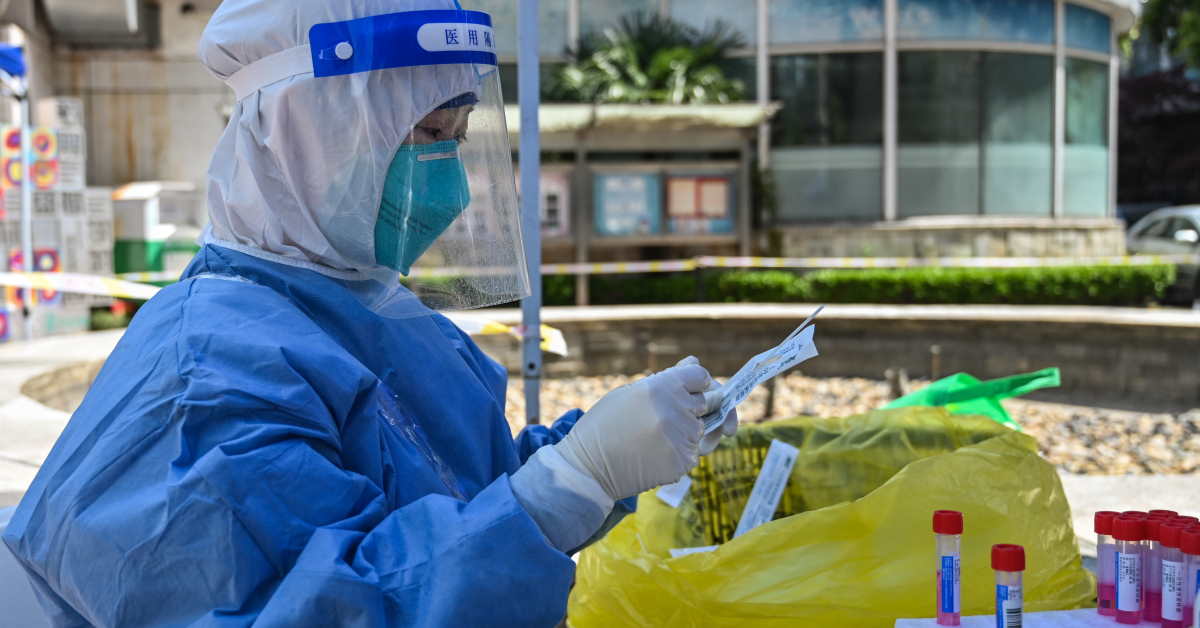Shares in the Chinese pharmaceutical group Kintor rocketed on Wednesday after it reported that trials had shown its COVID-19 drug to be highly effective, making it potentially China's first homegrown antiviral treatment.
Shares closed up more than 100 percent in Hong Kong after the group said its new pill dramatically reduced the risk of hospitalisation or death from COVID-19, particularly among the middle-aged or elderly.
The drug, proxalutamide, cut the risk of hospitalisation or deaths by 50 percent to 100 percent depending on the length of treatment, Kintor said in a statement.
Tong Youzhi, the group's founder and chairman, said the drug had shown a reduced viral load against both the Delta and Omicron variants.
The group will now apply for emergency use authorisation for the treatment in China, the United States (US) and other countries, he added.
"The top-line data of this pivotal study demonstrates the clinical efficacy of proxalutamide... with a significant reduction of hospitalization and death rate in patients," he said.
At its peak Kintor shares soared some 229 percent, according to Bloomberg.
Chinese media hailed the results as a "breakthrough".
Proxalutamide was originally used to reduce the production of male hormones, particularly for use in the treatment of prostate cancer.
But its reputation has been marred by a health scandal in Brazil, where a team had conducted trials, separate from those by Kintor, to assess its effectiveness against COVID.
The Brazilian researchers initially announced positive results, but a large part of the scientific community expressed scepticism about their credibility.
Brazilian authorities also denounced the researchers' methods, saying they could have contributed to the deaths of 200 people as the country grappled with a deadly wave of the virus.
Tens of millions are locked down across China as Beijing sticks to a policy of pursuing zero cases and battles its most serious outbreak since the earliest days of the pandemic.
Beijing recorded 20,472 infections Wednesday – the highest daily infection number ever reported in the country, even during the peak of China's initial outbreak in the city of Wuhan.
The vast majority of cases are asymptomatic.
Beijing has also been ramping up efforts to vaccinate its huge population, particularly among the elderly where levels remain low.
Regulators have not yet approved any foreign-made coronavirus vaccines, but several Chinese vaccine makers have recently been given the go-ahead for clinical trials for a domestically-made mRNA Covid jab.
Beijing gave "conditional" approval in February for Pfizer's COVID-19 drug Paxlovid to treat adults with mild to moderate illness and a high risk of developing severe disease.
Lab tests have shown Omicron patients jabbed with the Chinese-produced Sinovac vaccine experience larger drops in antibody levels than those given the Pfizer version.
